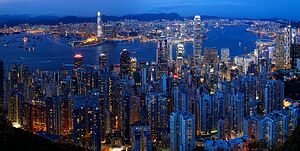Hong Kong people being whisked away to detention in mainland China is apparently of no concern to Carrie Lam, who starts her five year term in charge of the city this week.
Lam’s remarks in a television interview that the vanishing of booksellers from Hong Kong in 2015 and their subsequent detention by mainland Chinese security officials is a “matter for the mainland authorities” is chilling for all those who value the city’s freedom and rule of law.
The ability of Hong Kong’s new chief executive to stand up to Beijing will be tested this week as President Xi Jinping visits the city to mark the 20th anniversary of its handover to China. There are reports the city’s cherished freedom of expression will be further curtailed during his visit with banners criticizing the Chinese government set to be removed by police to avoid causing “embarrassment.”
If true, it is the city’s political leaders who are the embarrassment if they are willing to violate the human rights of Hong Kong residents just to appease Beijing.
This is not scaremongering by liberals pushing a Western agenda, as Beijing loyalists often argue. The blueprint was set out by China’s third-in-command, Zhang Dejiang, when he delivered a speech on Hong Kong’s handover on May 27. He urged the city’s leaders to “steadfastly implement the constitutional obligation of national security under the Basic Law (the city’s mini constitution)” .
This would require Hong Kong to enact laws to prohibit acts such as “subversion against the Central People’s Government,” “theft of state secrets,” and the establishment of “ties with foreign political organizations or bodies” by political organizations or bodies of Hong Kong” under Article 23 of the Basic Law.
Look across the border to the mainland and you will see the disturbing repercussions of an agenda that distorts national security concerns. Under the pretext of protecting national security, Xi has introduced a series of laws in China that restrict human rights. The definition of “national security” in these laws is virtually limitless, covering “the welfare of the people, sustainable economic and social development, and other major national interests.”
That vague definition of national security provides carte blanche for the government to go after those that legitimately scrutinize abuses of power or simply voice differing opinions. Government targets such as human rights defenders, activists, and dissidents are frequently detained and persecuted, many on “national security” charges, such as “inciting subversion of state power” and “leaking state secrets.”
A mainland court sentenced activist Su Changlan, who supported Hong Kong’s pro-democracy protests, to three years in prison on the spurious charge of “inciting subversion of state power.” The indictment made clear it was Su’s criticism of the Communist Party and the government, which she had posted on overseas websites and social media, that landed her in jail.
Last time an Article 23 proposal was considered in Hong Kong in 2003, half a million people came out on the streets to protest and the idea was put aside. But since the 2014 pro-democracy Umbrella Movement, which brought a new wave of young activists to the fore, Beijing seems intent on pushing through these heavy handed national security reforms.
It appears Carrie Lam’s remit is to deliver on this, although she recognized during her election campaign that the issue is highly controversial, so that the government had to act cautiously to try and create the “right social conditions for legislation.”
Another cornerstone of Hong Kong, the independence of courts and judges, is also increasingly under attack. The city’s judiciary has experienced intensifying pressure to give up its impartiality and independence in “sensitive” cases and instead bend to Beijing’s political requirements.
After the sentencing of the seven police officers who assaulted democracy activist Ken Tsang during the Umbrella Movement protests, state mouthpieces initiated a well-orchestrated campaign attacking the impartiality of Hong Kong’s judicial system.
Despite political pressure and even threats of physical attacks, judges in Hong Kong have showed the courage to continue to make independent and impartial judgments, strictly according to law and legal principles. Judges, overall, continue to be a strong line of defense in protecting individuals from abuses of power and safeguarding rights guaranteed in the Basic Law.
Xi claims to promote “rule of law,” but judicial independence is glaringly absent from his vision. Under Xi’s rule, the president of the Supreme People’s Court criticized judicial independence as an “erroneous influence from the West.” With a lack of judicial independence and fair trials in mainland China, defendants are almost always found guilty once a case is brought to court.
The Chinese government seems intent to replicate such a model in Hong Kong and impose government control on courts. In his handover speech, Zhang Dejiang announced Beijing’s determination to tackle problems facing Hong Kong, including the “smearing” efforts of “internal and external forces” to discredit the central government and Hong Kong government, through “powerful legal weapons.”
These legal weapons appear to be an extension of using vague charges of public disorder and unlawful assembly to intimidate people who dare challenge authorities. Such an approach may use legal tools, but it is not lawful under international law.
Despite the wrecking ball the Chinese government wants to take to Hong Kong’s freedom, many local groups are prepared to defend these values, even if their government won’t.
Carrie Lam has an opportunity to defend human rights and resist the expansion of Beijing’s repressive policies to Hong Kong. However, if she and other political leaders acquiesce to Beijing, there are millions of Hong Kong people who are prepared to stand up for their rights.
Mabel Au is Director of Amnesty International Hong Kong.

































